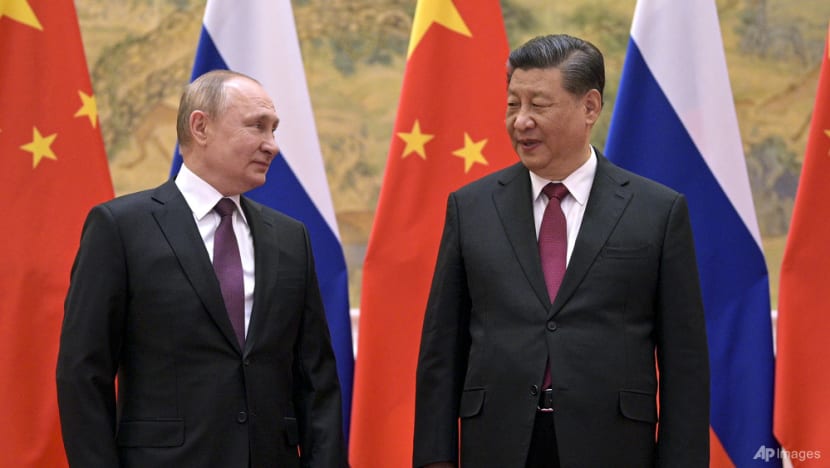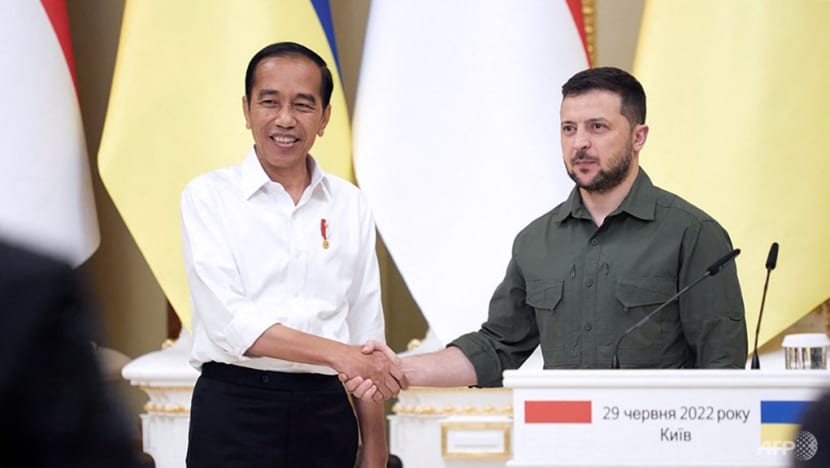While G20 meetings are supposed to be about economic issues, the participation of Russian President Vladimir Putin and Chinese President Xi Jinping means the Ukraine war and Taiwan tensions will become a focus, says former diplomat James Carouso.

WASHINGTON DC— If everything goes according to plan, Indonesian President Joko Widodo might host one of the most anticipated geopolitical meetings this year.
Jokowi, as he is popularly known, confirmed on Aug 18 that both Russian President Vladimir Putin and Chinese President Xi Jinping are expected to attend the November Group of Twenty (G20) Summit in Bali.
It will be the first major multilateral meeting either leader will attend in person – and the first trip abroad besides a recent visit to Saudi Arabia for Xi – since the pandemic started in 2020. It will also be the first time Putin has left Russia or the Russian “near abroad” since the Ukraine invasion.
Jokowi has made clear the importance he places on having all G20 leaders attend this summit as a capstone to Indonesia’s G20 presidency.
His July visits to Ukraine and Russia were aimed in large part to raise Indonesia’s (and his personal) global profile and to encourage Putin to attend – all while convincing Ukrainian President Volodymyr Zelenskyy, also invited as a G20 guest, not to urge a boycott if Putin does attend.

While G20 meetings are supposed to be about global economic issues, there is no doubt that the war in Ukraine and China’s increasing military activity around Taiwan will be a focus.
Why then have Putin and Xi chosen to participate?
WHAT WILL VLADIMIR PUTIN’S NARRATIVE BE?
Despite so many world leaders being given the chance to confront him, Putin will still see this as an opportunity.
First, Putin can demonstrate (yet again) to the Russian people that he is a strong leader – that he is unafraid to face his nation’s enemies and will not back down.
He can say he offered to meet with United States President Joe Biden without preconditions, and Biden will turn him down. This is because Biden cannot afford the US domestic political cost of a meeting that will not result in progress.
Second, just meeting Zelenskyy, with whom Moscow has rejected calls to meet for months, can be spun as an effort to achieve peace.
Even better would be the opportunity to use this to create a split among Ukraine’s Western supporters. Might he combine this meeting with an increase in gas flows to Europe, timely as the mercury starts to fall in the coming winter months? This could divide opinions on the US call for a weakened Russia.
Could Putin offer a ceasefire? Would Zelenskyy agree to any territorial concessions? Much depends on where the opposing forces are come November.
Perhaps this is why many analysts expect a near-term push by Russia to take Ukraine-controlled parts of the Donbas region and why Ukraine seems poised to try retaking Kherson in southern Ukraine.
Putin knows how to play the long game. He likely expects encouragement for any feints towards peace from such G20 members as Argentina, Brazil, South Africa, Turkey and India.
Any criticism from the US can be painted as a misplaced priority of weakening Russia over facilitating peace, in an effort to nudge countries away from American-led support for Ukraine and US influence generally.
CHINA NATIONAL PARTY CONGRESS, US MID-TERM ELECTIONS
With US-China tensions running high, Xi will likely use this economic forum to remind countries of its role as primary trading partner of many nations and the economic risk they run if they oppose China.
Xi will use the Bali meetings to press the righteousness of the “One-China” principle and highly aggressive response to US House Speaker Pelosi’s visit to Taiwan in early August. He will re-emphasise that the Chinese economic model has proven successful (current economic difficulties notwithstanding) and that China is a major source of investment and infrastructure development for many countries.
It will be a reminder that access to the enormous Chinese market and to Chinese financial capital are subject to not violating key Chinese political principles such as the non-recognition of Taiwan. South Korea, Japan, Philippines and Australia have all been subjected to Chinese trade restrictions on their exports when they took political positions China opposed.
Will Xi and Biden meet? With the Chinese Communist Party twice-per-decade National Congress now scheduled for October, the question is how Xi will want to use his new status as the unprecedented three-term party leader. Without the challenges of managing the congress and its associated politics, more options open up.
Xi could de-escalate tensions with the US without worrying about appearing weak and steer the focus toward the economy. Or he could dial up the rhetoric on Taiwan, the South China Sea and trade tariffs, and show he will not back down from Biden.
What would Biden achieve from such a meeting? The G20 summit will take place the week after the US mid-term elections, so Biden may feel less constrained in agreeing to reduce tariffs (and thereby reduce US inflation) in return for a statement from Xi that he seeks peaceful reunification with Taiwan (and a concomitant reduction in military exercises around Taiwan), and re-enter climate change discussions with the US.
A HIGHLY ANTICIPATED G20 SUMMIT IN INDONESIA
Of course, two months away from the Bali summit, all of the above outcomes are highly speculative.
Still, even if the summit resulted in few changes in the Ukraine or Taiwan situations, Jokowi could hail a Putin-Zelenskyy or Xi-Biden meeting as indication of a successful summit.
It demonstrates the importance of Indonesia as a country to be courted. With its large and growing population and economy, an important source of critical minerals, and location at a crucial geostrategic crossroads, Indonesia is arguably the most important non-aligned nation in the world right now.
Given friction and distrust between US allies and Russia and China are near all-time highs, efforts to shape agreements prior to the actual meeting will be near impossible. All eyes will be on Bali and how the leaders navigate the tension between looking tough and appearing as peace-seekers.
